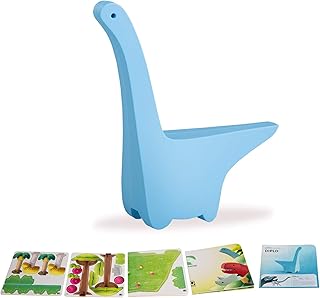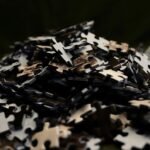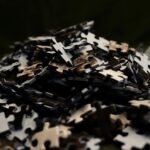Science Brain Teasers for Kids: Spark Curiosity, Sharpen Minds, & Unleash Future Innovators
Ever wonder how to make learning science less like a chore and more like an exciting adventure? The answer might be simpler than you think: science brain teasers for kids! These engaging puzzles are far more than just fun riddles; they are powerful tools designed to ignite curiosity, foster critical thinking, and build essential problem-solving skills in young minds.
In a world increasingly driven by scientific and technological advancements, nurturing a child’s natural inclination to question, explore, and understand is paramount. This article will delve into why science brain teasers are so beneficial, provide age-appropriate examples, and offer practical tips for incorporating them into your child’s learning journey.
Why Science Brain Teasers Are Essential for Young Minds
Science brain teasers offer a unique blend of entertainment and education, shaping how children approach challenges and absorb new information. Here’s why they’re so crucial:
Fostering Critical Thinking
Instead of simply memorizing facts, brain teasers encourage children to analyze situations, weigh different possibilities, and deduce logical conclusions. They learn to ask “why?” and “how?” rather than just accepting information at face value.
Igniting Curiosity & Exploration
The “aha!” moment that comes from solving a tricky science puzzle is incredibly rewarding. This feeling fuels a natural desire to explore further, prompting children to delve deeper into scientific concepts and the world around them.
Boosting Problem-Solving Skills
Each brain teaser is a mini-problem waiting to be solved. Kids learn to break down complex challenges into smaller, manageable parts, experiment with different solutions, and persevere through trial and error – skills vital for success in all areas of life.
Enhancing Scientific Literacy
By engaging with science concepts in a playful, low-pressure environment, children build a foundational understanding of physics, chemistry, biology, and more. This informal learning makes formal science education less daunting and more enjoyable later on.
Types of Science Brain Teasers for Kids
Science brain teasers come in many forms, each designed to challenge different aspects of a child’s cognitive abilities:
-
Observation-Based Puzzles
These require keen attention to detail, asking children to spot differences, identify patterns, or describe scientific phenomena they observe.
-
Logic & Deduction Challenges
Children use reasoning to connect clues and infer answers, often based on scientific principles like cause and effect.
-
Experiment & Prediction Teasers
These present a scenario and ask children to predict what will happen next, encouraging them to think about scientific forces and reactions.
-
“What Am I?” Riddles (Science-themed)
Describing a scientific object, concept, or organism through clues, requiring children to apply their knowledge to identify it.
-
Concept Application Scenarios
Children are given a real-world problem or situation and asked to apply a scientific principle to solve or explain it.
Ready to Play? Engaging Science Brain Teasers for Different Ages
Here are some examples tailored to inspire curiosity and sharp thinking in various age groups:
For Younger Scientists (Ages 5-8)
These teasers focus on basic observation, simple cause-and-effect, and common natural phenomena.
For Middle Explorers (Ages 9-12)
These introduce more complex scientific ideas and require a bit more deduction and conceptual understanding.
For Aspiring Innovators (Ages 13+)
These challenges require deeper scientific knowledge, analytical thinking, and the ability to apply principles to new situations.
Practical Tips for Integrating Brain Teasers into Learning
To maximize the benefits of science brain teasers, consider these practical tips:
- Make it a Game, Not a Test: Keep the atmosphere light and fun. The goal is engagement, not grading.
- Encourage Discussion: Don’t just look for the right answer. Ask “How did you figure that out?” or “What made you think of that?” This builds metacognition.
- Relate to the Real World: Connect the teaser to everyday observations or bigger scientific concepts. For example, after the ice melting teaser, discuss sea levels and climate change.
- Provide Hints: If a child is stuck, offer gentle nudges or ask guiding questions rather than giving away the answer immediately.
- Explain the Science: Once solved, take a moment to explain the scientific principles at play in an age-appropriate way.
- Celebrate Effort: Acknowledge their persistence and creative thinking, even if they don’t get the answer right away.
- Start Simple, Build Complexity: Begin with easier puzzles to build confidence, then gradually introduce more challenging ones.
Where to Find More Science Brain Teasers
The world is full of opportunities to find and create science brain teasers:
- Educational Books & Puzzle Collections: Many publishers offer books specifically designed for science puzzles for kids.
- Online Science Education Websites: Websites like NASA Kids’ Club, National Geographic Kids, and various science museums often have interactive games and riddles.
- Educational Apps & Games: Look for apps that focus on science logic and problem-solving.
- Science Museums & Centers: Interactive exhibits are often elaborate brain teasers themselves, encouraging hands-on exploration.
- DIY: Create Your Own! Observe everyday phenomena with your child and turn them into “What if?” or “Why does this happen?” questions.
Conclusion
Science brain teasers are a delightful and effective way to inspire a lifelong love for learning and discovery in children. By presenting scientific concepts as engaging puzzles, we empower young minds to think critically, solve problems creatively, and approach the world with a sense of wonder and curiosity.
So, whether you’re a parent, teacher, or caregiver, embrace the power of science brain teasers. Start challenging the young scientists in your life today, and watch as their minds sharpen, their curiosity blossoms, and they take their first exciting steps towards becoming the innovators of tomorrow!
Related Amazon Products

The Highlights Book of Things to Do: The Highlights Book of Things to Do (Highlights Books of Doing): Ultimate Kids Activity Book with Over 500 Screen-Free Activities, Brain Teasers, Recipes, Craft

HALFTOYS Magnetic 3D Puzzle Diplo Dinosaur|Early Learning Toys for Ages 3+ |STEM Educational Toy Set for Boys & Girls|Interactive Brain Teaser Toys|Prehistoric Animals

Sleuth & Solve: 20+ Mind-Twisting Mysteries: (Mystery Book for Kids and Adults, Puzzle and Brain Teaser Book for All Ages)

Perfectly Logical!: Challenging Fun Brain Teasers and Logic Puzzles for Smart Kids
As an Amazon Associate I earn from qualifying purchases.






